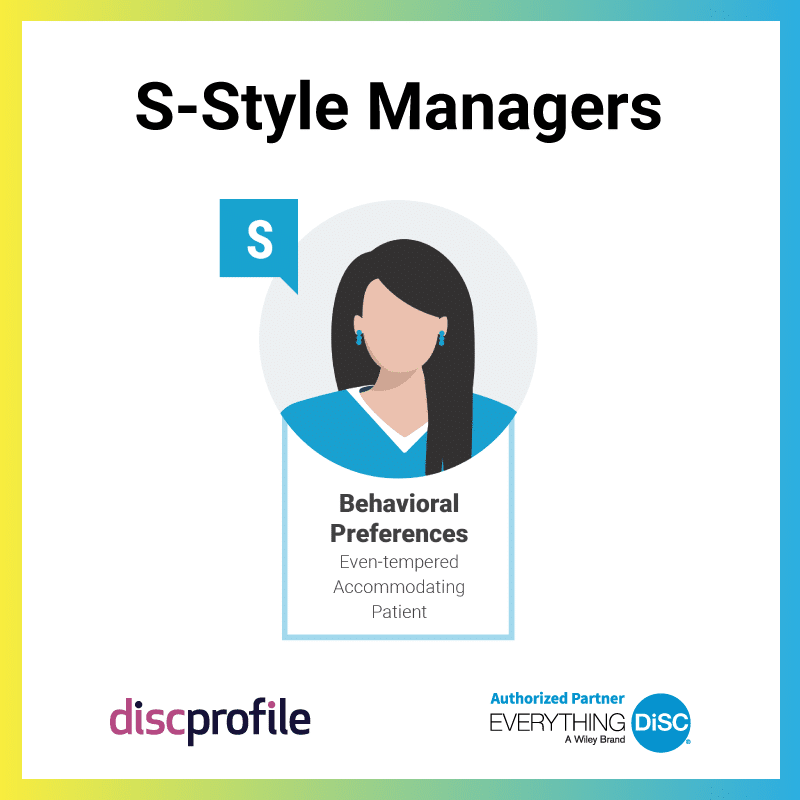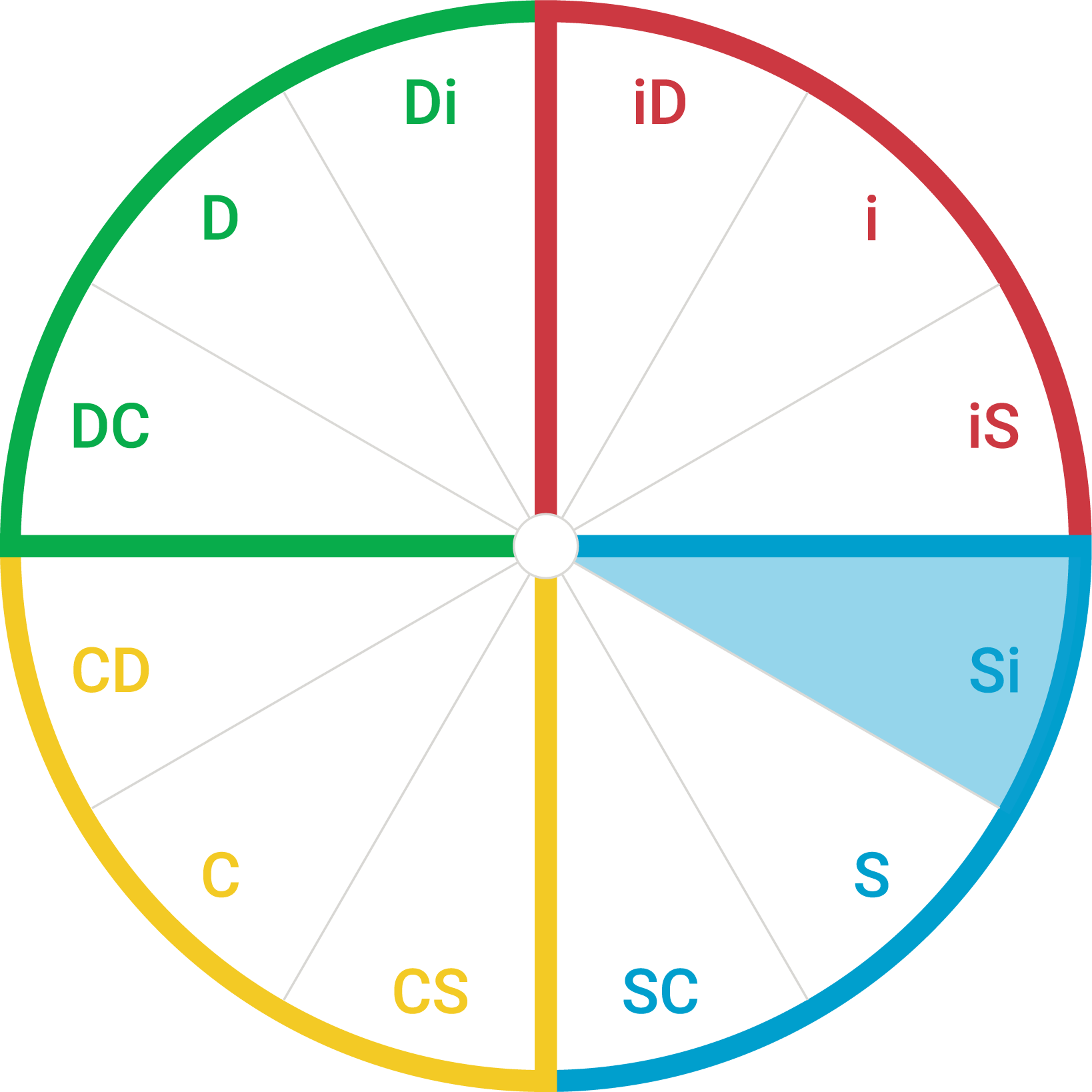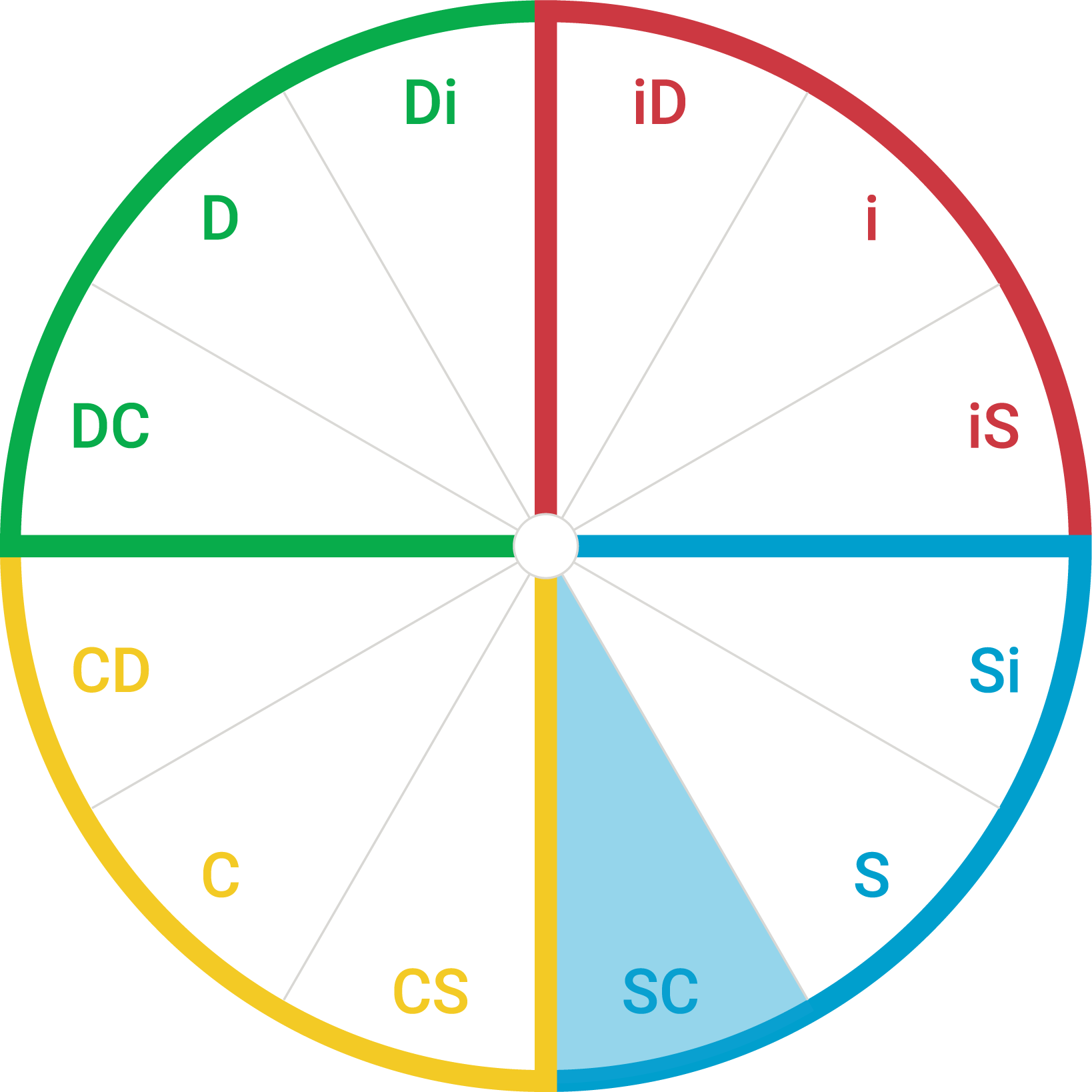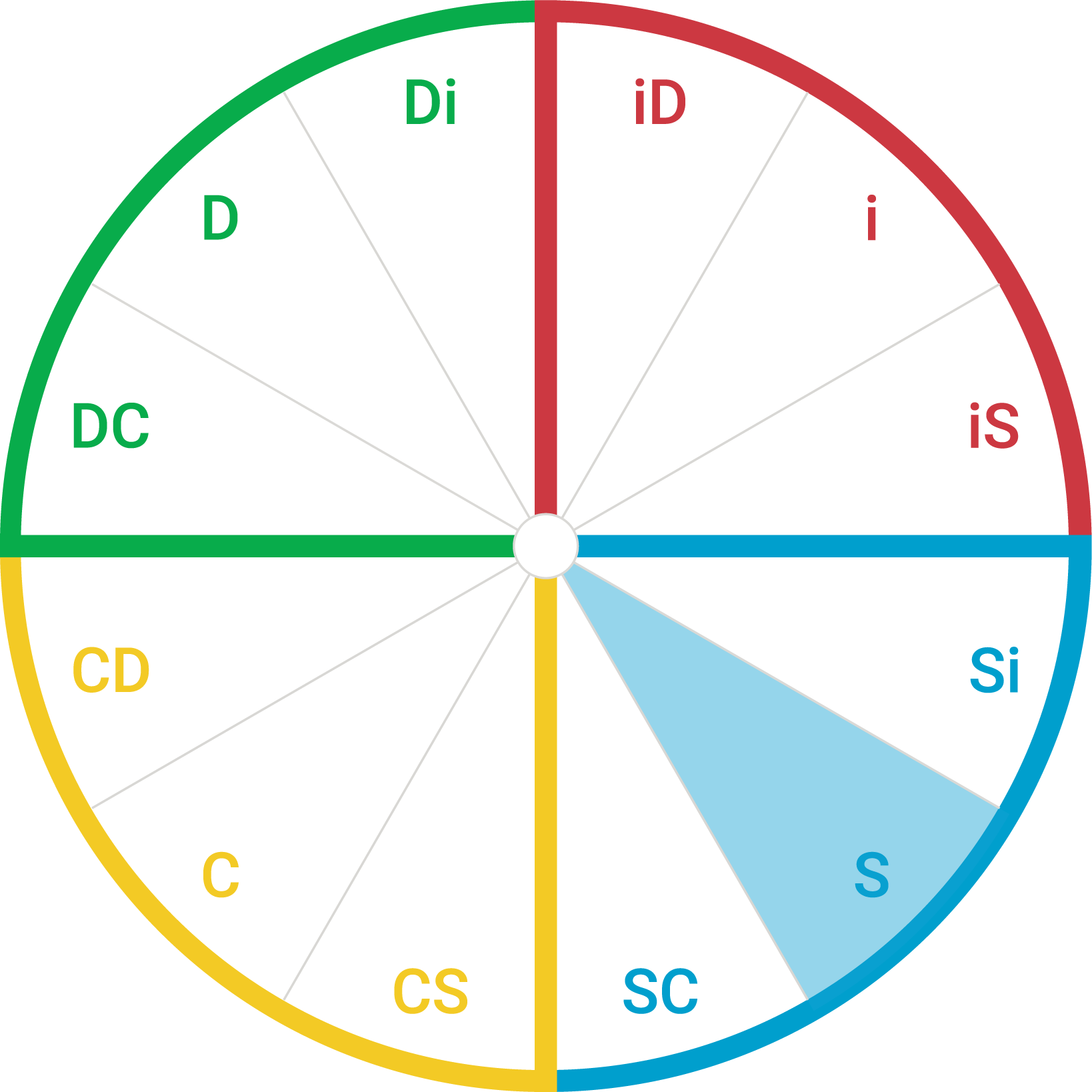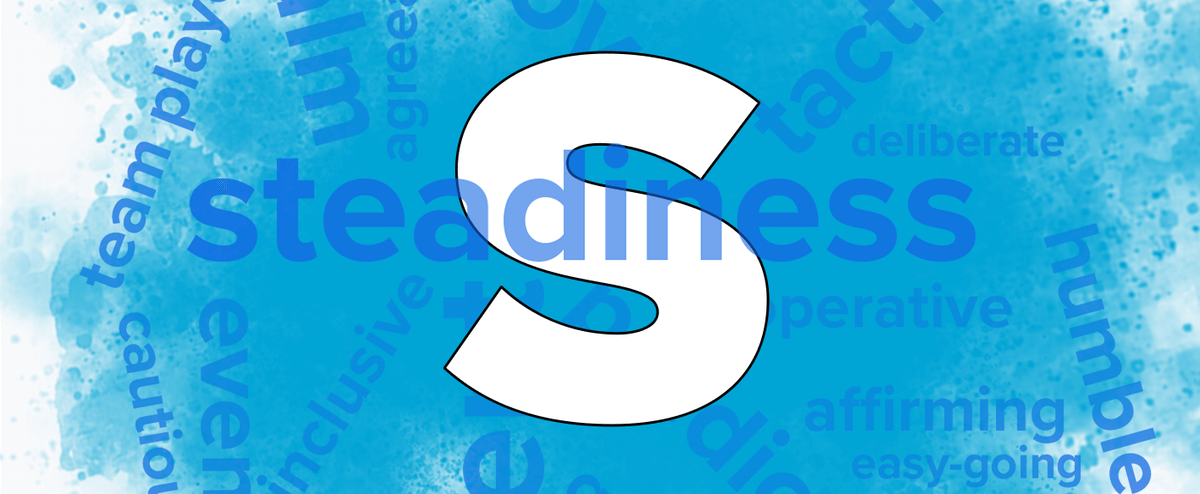
S style
S is for steadiness
People with the DiSC S style personality tend to be sincere, dependable, and cooperative. You’ll notice the S style offering to help others and keeping the peace during tense situations.
What does the S in DiSC mean?
The S in the Everything DiSC® model stands for steadiness. People with S-type personalities are often described as calm, peaceful, or even-tempered. They're dependable and enjoy collaboration. They show a great deal of concern for the feelings of the people around them.
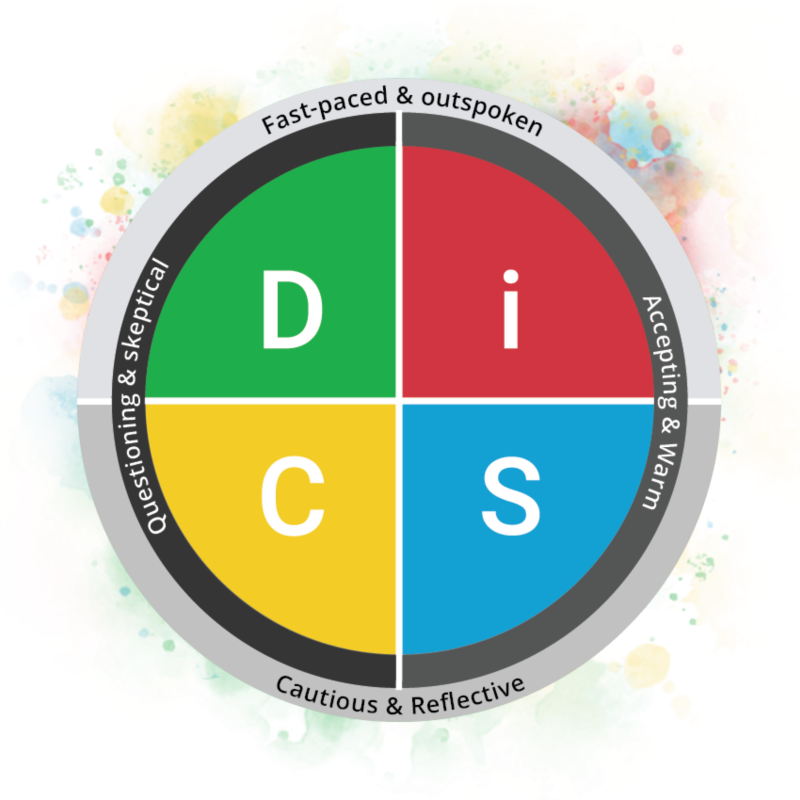
How do you get typed as an S style in DiSC?
The DiSC model, at its foundation, is two-dimensional, measuring:
- pace (from fast-paced and outspoken to cautious and reflective)
- agreeableness (from questioning and skeptical to accepting and warm)
S styles are those personalities that are both cautious and reflective, and also accepting and warm.
An Everything DiSC assessment goes far beyond these two scales. When you take the assessment, you'll discover your placement within the DiSC circle model, which fine-tunes the four main DiSC styles into 12 more specific styles.

Dot placement
Human personality is incredibly varied, and the DiSC assessment recognizes this. Though people with S styles share high-level behavioral preferences, these traits show up in many ways. The dot placement on your Everything DiSC profile tells this story.
For example, you might be strongly inclined to the SC style, with your dot appearing on the far edge of the circle, in the S quadrant close to the C quadrant like the image shown here. Or you might be slightly inclined toward the S style with your dot appearing closer to the middle and centered in the S quadrant.
Learn more: DiSC® dot and priorities explained


